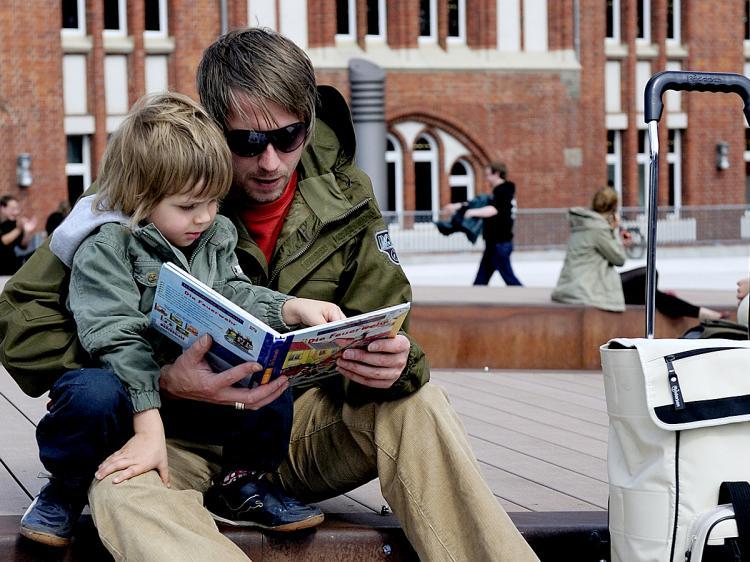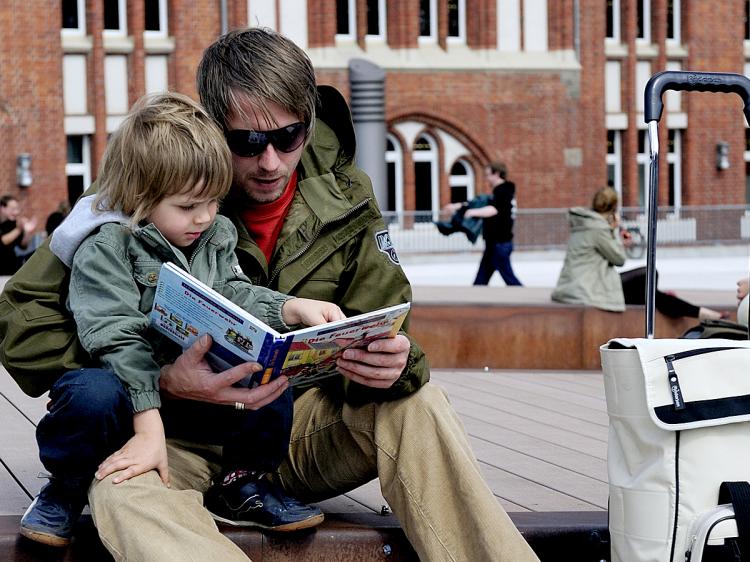NEW YORK—As more H1N1 cases are discovered globally, New York City officials are urging parents and guardians to take advantage of upcoming free H1N1 vaccinations for public elementary school students.
Over the next two weeks, all city elementary school students will take home consent forms that parents will need to read, complete, and return in order for their kids to receive free immunizations this fall.
“Besides protecting their own children from the H1N1 virus, parents who take advantage of the free immunizations will help reduce the ability of the H1N1 flu to spread throughout the entire school community,” said Mayor Bloomberg, who was joined at Tweed Courthouse on Tuesday by New York City Health Commissioner Dr. Thomas Farley, Schools Chancellor Joel Klein, and Deputy Mayor for Education Dennis Walcott.
The consent forms are available in 10 languages, including Arabic, Bengali, Chinese, English, French, Haitian Creole, Korean, Russian, Spanish, and Urdu. The forms are also available for download at www.nyc.gov/flu.
“Although we encourage all parents to have their children vaccinated by a regular health care provider, this vaccination program is to make sure all children have the opportunity to be vaccinated,” said Health Commissioner Farley in a news release.
The city officials announced a three-phase schedule for the vaccinations. Phase one will begin on Oct. 28 in school buildings with less than 400 students, where vaccinations can be conducted by school nurses; phase two will start on Nov. 4 in school buildings with enrollments of more than 600; and phase three will begin on Nov. 9 in the remaining schools.
The vaccinations will be conducted on regular school days and will continue for about eight weeks. Non-public schools that choose to participate will also be scheduled during this period.
During November and December, free weekend vaccination events for middle and high school students will be held in each borough. The corresponding consent forms will be available at the weekend vaccination clinics. More information can be found at www.nyc.gov/flu or by calling 311.
The H1N1 vaccine comes in two forms: an injection and a nasal spray. Children may receive one form or the other, as determined by the nurse upon reviewing relevant information on the consent and screening forms completed by parents or guardians. Once children are vaccinated, it will take them about 10 days to develop immunity to the H1N1 virus.
According to officials, the seasonal flu vaccine does not provide immunity against the H1N1 virus. Like all other vaccinations, flu vaccines can cause mild side effects, but serious reactions are rare.
The officials say the following groups are particularly vulnerable to H1N1 and should receive the vaccine.
• Pregnant women
• People aged 6 months to 24 years
• People aged 25 to 64 years with long-term health problems
• People who live with or care for children younger than 6 months
• Health care and emergency medical workers
Over the next two weeks, all city elementary school students will take home consent forms that parents will need to read, complete, and return in order for their kids to receive free immunizations this fall.
“Besides protecting their own children from the H1N1 virus, parents who take advantage of the free immunizations will help reduce the ability of the H1N1 flu to spread throughout the entire school community,” said Mayor Bloomberg, who was joined at Tweed Courthouse on Tuesday by New York City Health Commissioner Dr. Thomas Farley, Schools Chancellor Joel Klein, and Deputy Mayor for Education Dennis Walcott.
The consent forms are available in 10 languages, including Arabic, Bengali, Chinese, English, French, Haitian Creole, Korean, Russian, Spanish, and Urdu. The forms are also available for download at www.nyc.gov/flu.
“Although we encourage all parents to have their children vaccinated by a regular health care provider, this vaccination program is to make sure all children have the opportunity to be vaccinated,” said Health Commissioner Farley in a news release.
The city officials announced a three-phase schedule for the vaccinations. Phase one will begin on Oct. 28 in school buildings with less than 400 students, where vaccinations can be conducted by school nurses; phase two will start on Nov. 4 in school buildings with enrollments of more than 600; and phase three will begin on Nov. 9 in the remaining schools.
The vaccinations will be conducted on regular school days and will continue for about eight weeks. Non-public schools that choose to participate will also be scheduled during this period.
During November and December, free weekend vaccination events for middle and high school students will be held in each borough. The corresponding consent forms will be available at the weekend vaccination clinics. More information can be found at www.nyc.gov/flu or by calling 311.
The H1N1 vaccine comes in two forms: an injection and a nasal spray. Children may receive one form or the other, as determined by the nurse upon reviewing relevant information on the consent and screening forms completed by parents or guardians. Once children are vaccinated, it will take them about 10 days to develop immunity to the H1N1 virus.
According to officials, the seasonal flu vaccine does not provide immunity against the H1N1 virus. Like all other vaccinations, flu vaccines can cause mild side effects, but serious reactions are rare.
The officials say the following groups are particularly vulnerable to H1N1 and should receive the vaccine.
• Pregnant women
• People aged 6 months to 24 years
• People aged 25 to 64 years with long-term health problems
• People who live with or care for children younger than 6 months
• Health care and emergency medical workers






